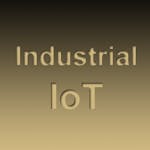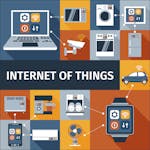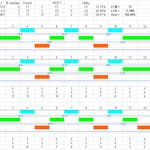Computer Engineering Definitions: A to Z Glossary Terms
Interested in computer engineering but you keep seeing terms unfamiliar to you? This A-to-Z glossary defines key computer engineering terms you need to know.
Computer engineering professionals are immersed in designing, developing, and managing computer hardware and software systems. They utilize various programming languages, frameworks, and tools to create web and desktop applications, design integrated circuits, optimize computer architecture, conduct thorough testing, and collaborate seamlessly with development teams. With a focus on innovation and problem-solving, computer engineers play a crucial role in advancing technology and shaping the digital landscape.
This computer engineering glossary can be helpful if you want to get familiar with basic terms and advance your understanding of computer engineering.
Computer Engineering Definitions: A to Z Glossary Terms
Interested in computer engineering but you keep seeing terms unfamiliar to you? This A-to-Z glossary defines key computer engineering terms you need to know.
Computer engineering professionals are immersed in designing, developing, and managing computer hardware and software systems. They utilize various programming languages, frameworks, and tools to create web and desktop applications, design integrated circuits, optimize computer architecture, conduct thorough testing, and collaborate seamlessly with development teams. With a focus on innovation and problem-solving, computer engineers play a crucial role in advancing technology and shaping the digital landscape.
This computer engineering glossary can be helpful if you want to get familiar with basic terms and advance your understanding of computer engineering.
Computer Engineering Terms
Arithmetic Logic Unit (ALU)
The Arithmetic Logic Unit is a fundamental component of a computer's central processing unit (CPU) that performs arithmetic and logic operations on data.
Binary Code
Binary code represents data and instructions using the binary number system, consisting of 0s and 1s.
Cache Memory
Cache memory is a small, high-speed memory located on the CPU that stores frequently accessed data to improve the computer's performance.
Data Bus
The data bus is a communication pathway that allows data to be transferred between various components of a computer system.
Embedded System
An embedded system is a specialized computer system that performs dedicated functions or tasks within larger electronic systems or products.
Firmware
Firmware is a type of software permanently stored in hardware devices, such as BIOS or microcontrollers, and provides low-level control and operation.
Graphics Processing Unit (GPU)
The Graphics Processing Unit is a specialized electronic circuit designed to accelerate the rendering of images and videos for display on a computer screen.
Hardware
Hardware refers to the physical components of a computer system, such as the CPU, memory, storage devices, and input/output peripherals.
Instruction Set Architecture (ISA)
The Instruction Set Architecture is a set of instructions a computer's CPU can execute, defining the interface between hardware and software.
Java
Java is a popular programming language used in computer engineering for its platform independence and versatility.
Kernel
The kernel is the core component of an operating system that manages system resources and provides essential services for software applications.
Logic Gate
A logic gate is a fundamental building block of digital circuits, performing logical operations based on input signals.
Machine Code
Machine code is a low-level programming language consisting of binary instructions that a computer's CPU can directly execute.
Network Interface Card (NIC)
The Network Interface Card is a hardware component that enables a computer to connect to a network and communicate with other devices.
Overclocking
Overclocking increases a computer component's clock rate to achieve higher performance, often done with CPUs or GPUs.
Power Supply Unit (PSU)
The Power Supply Unit is a hardware component that provides electrical power to a computer system.
Quantum Computing
Quantum computing is a cutting-edge field in computer engineering that leverages quantum mechanics to perform complex computations.
RAM (Random Access Memory)
RAM is a type of computer memory that allows data to be read and written quickly by the CPU, providing temporary storage for running programs and data.
System-on-a-Chip (SoC)
A System-on-a-Chip is an integrated circuit that combines multiple computer components and systems onto a single chip, commonly used in mobile devices and embedded systems.
Transistor
A transistor is a semiconductor device that acts as a switch or amplifier and is a fundamental building block of digital circuits.
USB (Universal Serial Bus): USB is a widely used interface for connecting peripheral devices to a computer, providing data transfer and power supply capabilities.
Virtual Memory
Virtual memory is a memory management technique that allows a computer's operating system to use disk storage as an extension of RAM.
Wi-Fi
Wi-Fi is a wireless networking technology that allows devices to connect to the internet and local area networks without using physical cables.
Conclusion
Congratulations on completing the A-to-Z glossary of Computer Engineering terms! These fundamental concepts provide a solid foundation to explore the diverse and exciting field of computer engineering. Whether just beginning your journey or seeking to deepen your knowledge, this glossary is a valuable resource to enhance your proficiency and understanding of computer engineering principles. Embrace the endless possibilities that computer engineering offers and continue your exploration and innovation in this ever-evolving field. Happy learning and engineering!
Learn in-demand computer engineering skills from industry leaders.
Computer Engineering Courses | Information Technology (IT) Courses | Software Development Courses | Computer Science Courses | Software Engineering Courses | Computer Skills Courses | Operating Systems Courses | Computer Network Courses | Computer Hardware Courses | Computer Architecture Courses | IoT Courses
 Join a community of over 100 million learners from around the world
Join a community of over 100 million learners from around the world Learn from more than 200 leading universities and industry educators.
Learn from more than 200 leading universities and industry educators. 70% of all learners who have stated a career goal and completed a course report outcomes such as gaining confidence, improving work performance, or selecting a new career path.
70% of all learners who have stated a career goal and completed a course report outcomes such as gaining confidence, improving work performance, or selecting a new career path.- 100% online
- Flexible schedule
- Mobile learning
- Videos and readings from professors at world-renowned universities and industry leaders
- Practice quizzes
Can’t decide what is right for you?
Try the full learning experience for most courses free for 7 days.Register to learn with Coursera’s community of 87 million learners around the world






